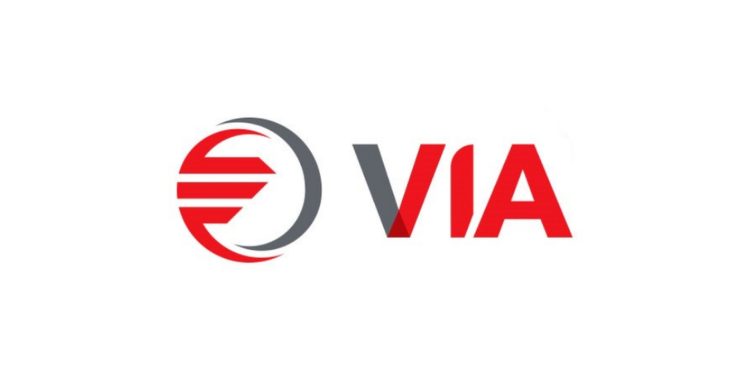VIA withdraw support for Clean Car Programme
VIA, the Imported Motor Vehicle Industry Association, has withdrawn its support for the Clean Car Programme due to ongoing failures in the implementation of the Clean Car Discount, first phase of the programme.
While VIA continues to support the stated goal of the Clean Car Programme, to reduce carbon emissions and incentivise the transition to a carbon neutral transport system, it was never our preferred option for achieving that goal.
The Programme was not appropriate for our unique supply dynamic, and we would have preferred to work with government to develop a scheme that was suitable to New Zealand. Unfortunately, that option was denied to us, so we did our best to contribute to the Clean Car Programme – providing feedback and suggestions to mould it for the New Zealand context.
In the end, we were satisfied that, while not perfect, the Clean Car Programme would positively contribute toward the stated goals at a cost the industry could endure.
VIA took the decision to support the Clean Car Programme.
VIA notes, however, that there have since been a multitude of design changes and failures, both fundamental and superficial, to the Clean Car Programme that were not consulted on and only became apparent as the programme was implemented. These changes are creating conditions that VIA simply cannot support.
While some of the issues might seem minor or insignificant, and others are legacy biases, the cumulation of these changes in combination with aspects of the Programme we have always opposed, is contributing to unfair market conditions, increased costs to consumers and industry, decreasing public trust in parallel imports, and decreased efficacy of the Programme. We expect these issues be further aggravated by the implementation of the Clean Car Standard.
Other failures of implementation, such as the ongoing issues with the supply and acceptance of vehicle data, are such a large concern that they alone warrant and justify our cessation of support for the Programme.
The following highlights some of the reasons VIA can no longer support the Clean Car Programme (not exhaustive and in no particular order)
- Application of a flawed safety regime to eligibility to Clean Car Programme subsidies that unfairly disadvantages light efficient used imports.
- Unequal and unfair treatment of PHEVs depending on whether imported by a parallel importer or OEM sponsored importer.
- Redesign of the used vehicle penalty scheme that is unfair and counter to previous agreements and first principle design justifications of the Programme.
- The use of “unladen weight” as opposed to “tare weight” without consultation or justification.
- Incomplete vehicle data coupled with an unwillingness to work with parallel importers to accept vehicle data.
- The inability to accurately identify vehicles consistently.
- A supplemental data rule, Vehicle Efficiency and Emissions Data (VEED) 2022, that prioritises the deflection of liability over the provision of accurate data.
- The willingness to knowingly use flawed data in calculating feebates.
- Deflection or denial of responsibility for known errors in vehicle data and in the application of that vehicle data.
- Failure to communicate known issues with industry and the public.
- Failure to provide appropriate communication channels or timeframes for resolving data issues.
- Unwillingness to recognise parallel importers as responsible agents for the goods they import.
- Unfair treatment of parallel importers versus OEM sponsored importers in the application of the VEED in general.
- Unequal treatment of functionally new vehicles.
- Failure to provide the industry with a letter of indemnity for knowingly allowing the government to misrepresenting vehicle emissions and mischarge car buyers through the application of flawed or unfairly applied data.
All the points in the list above have been raised to officials at either NZTA Waka Kotahi and/or the Ministry of Transport; a few of the points are still being discussed, most of them have seemingly been ignored.
It is VIA’s strong recommendation that the implementation of the Clean Car Standard be delayed until the existing flaws in the Clean Car Discount are addressed. Failure to heed VIA’s recommendation will further exacerbate the current issues by the extension of the issues into the Clean Car Standard. This does not even consider the potential of compounding the issues with poor Clean Car Standard design and implementation choices, known and unknown.
The government is misleading the public by using incomplete data, resulting in unfair penalties being charged. This has been termed “carbon theft” by the industry. The public may not be aware they are being cheated, but VIA has access to accurate and comprehensive vehicle data, and we can correctly identify vehicles; we are well informed on the correct penalties and credits.
VIA, and the vehicle import industry, will not accept such unfairness when the second phase of the programme, the Clean Car Standard which will be aimed at importers, is implemented.
If the programme had been implemented as proposed and agreed, VIA would still support it.
VIA will reassess its policy position once the issues with the implementation of the Clean Car Programme have been satisfactorily addressed.





